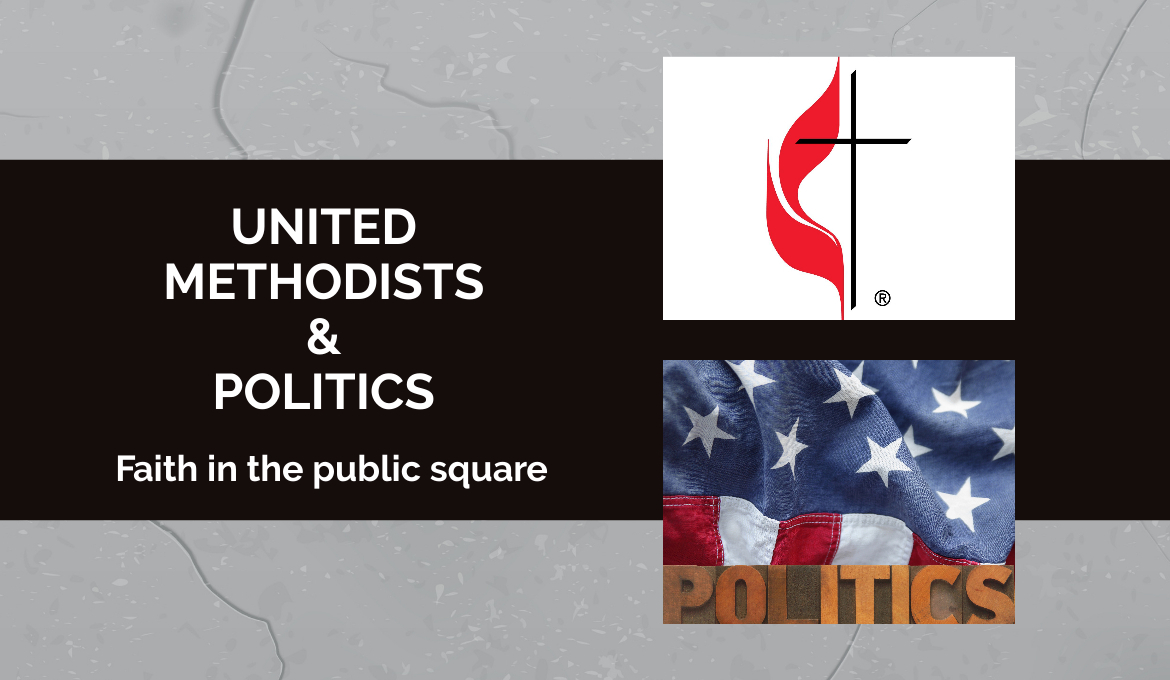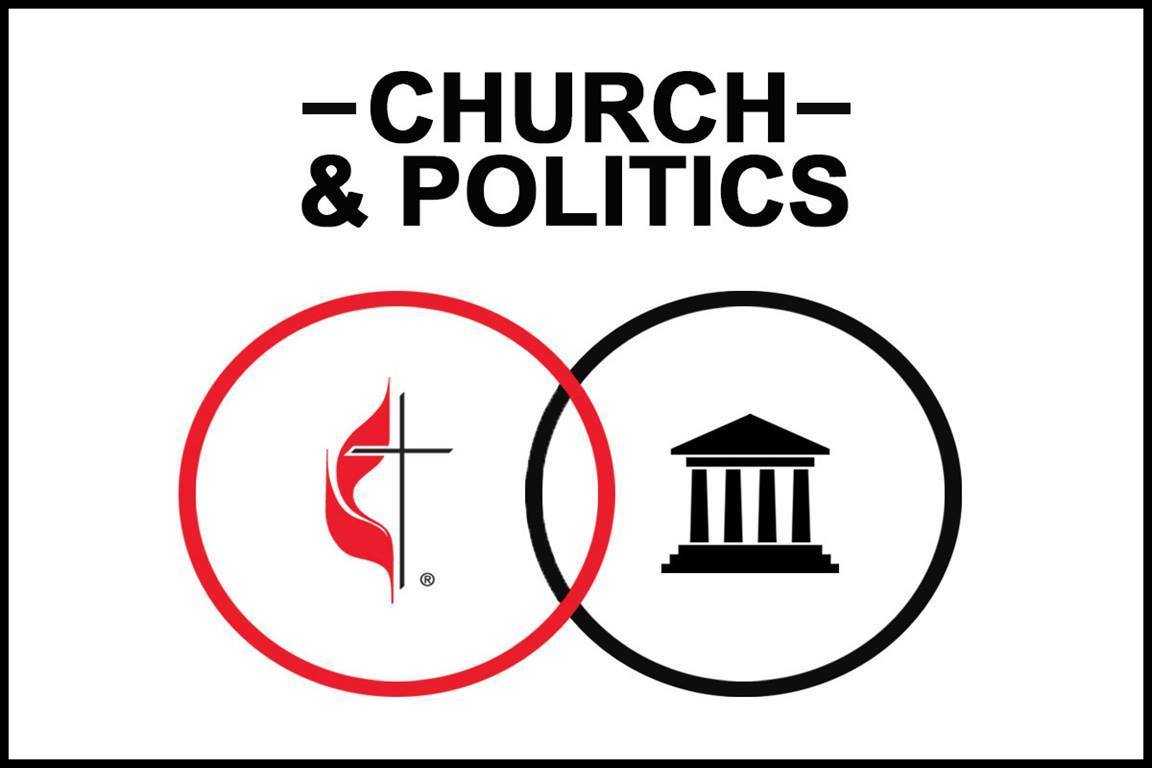
Navigating the political sphere as United Methodists

In his journal dated October 6, 1774, John Wesley, the founder of the Methodist movement, wrote:
"I met those of our society who had votes in the ensuing election and advised them
1. To vote, without fee or reward, for the person they judged most worthy
2. To speak no evil of the person they voted against, and
3. To take care their spirits were not sharpened against those that voted on the other side."
These words were written 250 years ago, but their wisdom is relevant and timely for the people who call themselves United Methodists today.
In the United States, we find ourselves in the midst of a contentious election season. We see it nationally and witness and experience it closer to home here in the Dakotas as well. As we seek to navigate it as faithful Jesus followers in the Wesleyan Way, we lean into prayer and scripture to stay humble and curious. We are also fortunate to have access to resources from across the connection that can help us traverse this road.
United Methodist Communications (UMCOM) recently shared an article they initially distributed in the months leading up to the 2020 election season. It seeks to answer the question of the role of Christians—specifically United Methodists—in politics. Below is a summary of key points from the article. (See full article here.)
Our history reminds us that Methodists have been engaged in the social and political sphere since our founding. As a worldwide denomination guided by our social principles, this political engagement looks different in different parts of the world.
As the article outlines, early Methodists in 18th century England "were among the primary advocates for the abolition of slavery across the British Empire, the organization of labor unions to protect workers from dangerous working conditions, the ending of the debtors prison system, and the creation of new systems of care for poor children." This advocacy has continued through issues such as "women's suffrage, temperance, civil rights, health care and care for the environment."
As the Social Principles state, 'Our allegiance to God takes precedence over our allegiance to any state' (¶ 164). Working to build a more peaceful and just world is one of the ways Methodists have been faithful to our call to social holiness since the beginning.
The General Conference establishes our Social Principles as a guide for the social witness of United Methodists worldwide. They are not doctrinal, and individual United Methodists may agree with some principles and disagree with others. However, they provide a means to enter the conversation and be equipped to think theologically about political and social matters.
As congregations consider how they might engage in social and political matters, it is vital to be clear about the IRS regulations as they relate to churches. According to the IRS, "all section 501(c)(3) organizations are absolutely prohibited from directly or indirectly participating in, or intervening in, any political campaign on behalf of (or in opposition to) any candidate for elective public office. Contributions to political campaign funds or public statements of position (verbal or written) made on behalf of the organization in favor of or in opposition to any candidate for public office clearly violate the prohibition against political campaign activity. Violating this prohibition may result in denial or revocation of tax-exempt status and the imposition of certain excise taxes."
United Methodist Church and Society offers various resources that can equip individuals and churches to be more active in the public square. UMCOM provides the following specific examples of what churches can and can't do regarding political involvement.

Congregations can:
- Discuss moral and public policy issues
- Urge congregants to communicate with candidates about issues or policies important to the community, encourage voting and help people get to the polls,
- Sponsor voter registration drives if conducted in a non-partisan manner,
- Provide education on topics in a non-partisan manner,
- Sponsor "get out the vote" campaigns and permit church facilities to serve as a polling place,
- Host candidate forums as long as all candidates are invited, a broad range of issues is discussed, and all candidates have equal opportunity to speak.
Congregations cannot:
- Issue statements endorsing or supporting candidates or distribute materials biased toward or against a particular candidate or political party,
- Donate money to a candidate or solicit contributions on their behalf,
- Offer church space to one candidate and refuse it to another,
- Sponsor campaign rallies for candidates in church,
- Donate to or set up their own Political Action Committee (PAC).
In addition to a congregation's role in political matters, pastors need to understand their own responsibilities and boundaries as they relate to politics. While pastors are certainly allowed to have their own viewpoint on political matters and speak out as citizens, they should clearly indicate that their statements—whether on social media or as a part of public statements or actions—are personal and do not represent or speak on behalf of the denomination, the annual conference, or their local church.
As a means of healthy communication, transparency, and trust-building, if a pastor is going to be commenting on a political matter through a public media platform or event, they are encouraged to make their S/PPRC and other relevant stakeholders in the church aware in advance so they are not caught off guard, especially in these anxiety-laden times.
With certain topics or intended actions, it is wise to make their district superintendent aware as well. Because of our church's connectional nature, how leaders present themselves and their views impacts not only the local faith community but also the broader connection. The assistant to the bishop for connection and communications, Rebecca Trefz, is also available as a resource when navigating public communications.
Resources
How to Have a Courageous Conversation – An Invitation for Interpersonal and Church-Wide Dialogue
Creating Change Together – A Toolkit for Faithful Civic Engagement
Do Unto Others Campaign for Kindness